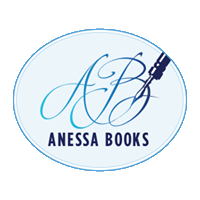 I am not a very self-confident person. I suffer from imposter syndrome and have forever. The more I do, the more I suffer. When I was merely a writer and mom, I worried that I was failing at both. When self-publishing became a Thing, I added formatting to my business repertoire and began to think that I stank at it—it was never perfect enough or professional-looking enough. When I began editing, I didn’t think I was qualified because I’ve always hated grammar—who was I to correct the grammar of other writers? When I started coaching, I questioned whether I was able to look at a manuscript critically enough.
I am not a very self-confident person. I suffer from imposter syndrome and have forever. The more I do, the more I suffer. When I was merely a writer and mom, I worried that I was failing at both. When self-publishing became a Thing, I added formatting to my business repertoire and began to think that I stank at it—it was never perfect enough or professional-looking enough. When I began editing, I didn’t think I was qualified because I’ve always hated grammar—who was I to correct the grammar of other writers? When I started coaching, I questioned whether I was able to look at a manuscript critically enough.
And here I am today to tell you that you should believe in yourself. To tell you what you should do about your writing/editing anxiety.
That makes a whole lot of sense, doesn’t it?
Actually, it does because I am an expert at feeling as if I’m not good enough/not qualified enough. I know what you should do to get past these feelings and continue doing what you’re doing because that’s what I have done for my entire career.
I have told you about all the ways in which I think I shouldn’t be doing what I do, but look, I’m still doing it! I have shoved aside those fears and I continue to do all of the things I listed above: I still write and publish books, I still format for other authors, I still edit and I coach authors.
How do I do that, you ask?
Well, number one, I’m an extremely stubborn person. Tenacious is the nice way of putting it. Once I start doing something, it’s hard to get me to stop. That goes for a career and it goes for whatever it is I happen to be doing just before dinner. (Oh, wait, you want me to cook dinner? Then I’d better set multiple alarms to get me to stop working, because I’m just going to keep ongoing until my own stomach protests so loudly that I can no longer ignore it. Sigh… my poor children have gone hungry and had late dinners too many times to count.)
The second way I have continued my work is by doing what I have warned you not to do so many times – I’ve asked my family and friends for feedback. There is no better way of getting positive, affirming feedback than by asking for it from those who love you. It’s not going to be honest or non-biased. That’s not what we’re going for here. It’s completely biased. It’s your mom telling you that you’re the best writer (or whatever) ever. Why does she say this? Is it because you are? Maybe, maybe not. But she says it because she’s your mom. My father reads every single book I write and afterwards he always says the same thing: “It’s not the type of book I like to read, but I loved every word.” It always makes me laugh. And it always makes me feel good. Sometimes that’s all you need.
Another trick is to look at what you’ve written and read it as if was written by a stranger. It’s really hard to read your own work objectively, but try it. (It’s easier if you haven’t read that particular piece in a while.) Is it any good? Does it read smoothly? Do you find yourself skimming parts? I do this with everything I write. If I can forget that I am the author of the piece and just read it like I would any other book, I know that I’ve done well, that I’ve written something good. If I constantly have to stop because the writing’s not smooth or there are mistakes, then I know it needs more work. If I can get through reading it, but I’m not in love with it, I go back and try to figure out why and then rewrite those parts or rework my plot or my characters until I can read it and love it. If I love reading my own work, I can be pretty certain other people will too.
And finally, be kinder to yourself. Give yourself some slack. If you’ve been having a hard time in your personal life, it’s not surprising that you’d be having problems writing. Find the source of your stress and anxiety and see what you can do to alleviate it. And if you can’t do it alone, don’t hesitate to reach out to either a friend or a professional for help.
The most important thing is that you are happy—happy with your work, happy with your life. Feel good about yourself because what you do—what I do—is not easy and it’s entirely subjective whether it’s good or not. I can coach one author and not be able to help them; I can coach another and be told that they simply could not have written their book without my guidance. I need to have the self-confidence to keep going and know that I will write well, edit to the best of my ability, and coach people who I can help.
